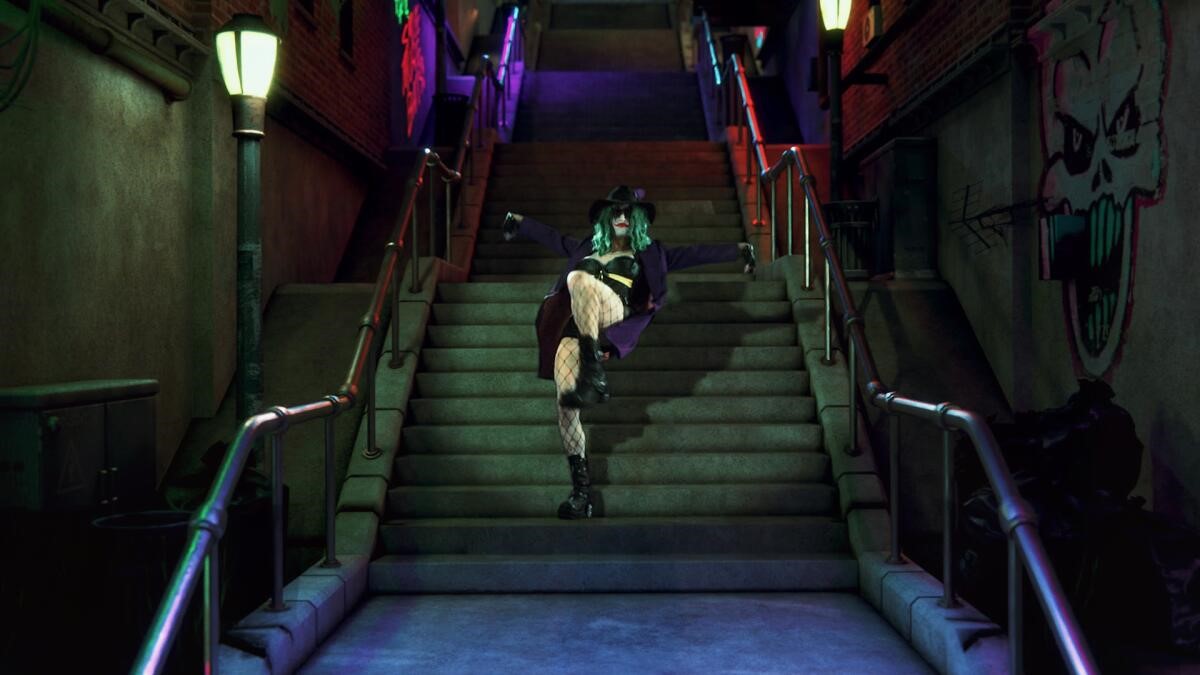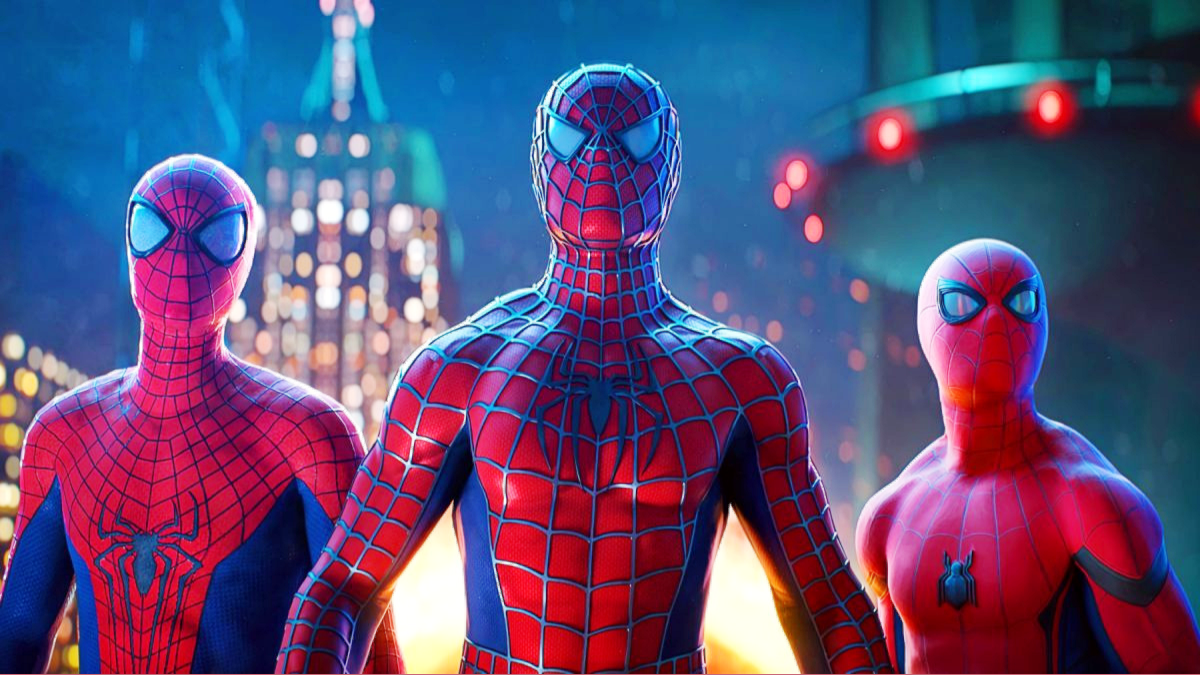
Writer/director Neill Blomkamp has recently expressed some dismay about the final cut of his sophomore film, Elysium. With a large budget and audacious concept, that sci-fi flick with a social conscience had a lot of potential, yet it only displayed scattered moments of brilliance. Blomkamp is certainly a filmmaker with ideas about placing sleek sci-fi stories into a crude, graffiti-strewn Johannesburg and watching how grit and genre can come together. However, the mesh between his humanist sci-fi allegories and high-octane action has always been inconsistent, dating back to his striking 2009 debut, District 9.
Chappie, his latest film, is yet another instance of a director thriving for the same ideals but coming up short. The genre here is not as much science fiction as it is cautionary 80s cinema that’s meant to prophesize the future schism between people and robotic prototypes. Blomkamp has admitted to being a fan of early James Cameron and Paul Verhoeven, both of whom probably deserve much of the credit for Chappie’s plot outline and fussy urban visuals.
The film is set in the near future, when the new front lines of Johannesburg’s police force are near-indestructible robot cops. The creator of these hefty but quick-moving mechanical beings is Deon (Dev Patel), an engineer lauded by his co-staffers at arms manufacturer Tetravaal. (Tetra Vaal is also the name of Blomkamp’s short film from a decade ago that inspired this story.) Co-worker Vincent (Hugh Jackman) despises how company funding is going to Deon’s creations instead of his project, a bulky machine called the Moose that is controlled through human thoughts.
When Deon achieves a breakthrough in his career-spanning project to harness artificial intelligence, he tries to spur these new findings on a busted cop prototype. (That title character has the voice of Sharlto Copley, as well as the actor’s motion-captured movements.) Before Deon can start training Chappie, though, a gang of South African criminals capture the engineer and demand he use this robot to help them with a $20 million bank heist. Two of the thugs are named Ninja and Yolandi, and they are played by two members of South African rap group Die Antwoord named, ahem, Ninja and Yolanda Visser. (The third member of the troupe, nicknamed Amerika, is portrayed by – you guessed it – an American actor, Jose Pablo Cantillo.)
From the moment Chappie is activated, one expects Blomkamp, who co-wrote the screenplay with wife Terri Tatchell, to explore the robot’s process as he adapts to the outside world and realizes the potential of his AI. If you’re hoping for this character study, you will be disappointed in how infrequently Chappie takes the point of view of its title character. At a few moments, we do see the action from his dimmed, computer schematic-like perspective, but Blomkamp and Tatchell rarely place the audience into the robot’s shoes.

Unsurprisingly, though, the robot is the character who expresses the most humanity. That is not so much a compliment to Chappie but a dispiriting issue with the men and women who populate this story, less humans than thin character types. Jackman gives a howler of a performance as Vincent, a figure of such unbridled menace that the actor is often reduced to screaming his lines. As Tetravaal executive Michelle Bradley, Sigourney Weaver gets even less to do. Her character’s thirst for skyrocketing stock ensures she will threaten the course of the story as soon as things falter in the company.
However, the true handicap of Blomkamp’s film is the casting of Die Antwoord, whose members speak with such glaring volume that it grates on the sound mix. Yolandi acts as Chappie’s mother figure, although she shrieks most of her lines. Ninja fits the film more appropriately, as the thuggish figure that introduces Chappie to ghetto slang and four-letter words, although he too suffers from the same volume issues as his musical partner. (It doesn’t help that the two characters are seen wearing Die Antwoord apparel, which is completely out of place.)
The lack of restraint in the performances clutters Chappie, which could have used more space to develop intelligent topics surrounding AI and scientific ethics. Meanwhile, just as District 9 touched on apartheid and class disparity was the backdrop for Elysium, Blomkamp’s newest effort feels timely, given the continued clashing between cops and civilians. Since his previous two films worked best when siding with the oppressed or underprivileged, it is unsatisfying how little Chappie examines its central robot, newly introduced to a world that fears and fails to understand him. Where the film does have space to focus on Chappie’s vulnerabilities and his virginal reaction to a dangerous city, it instead strays to focus on a more familiar genre story.
One of the script’s major plot issues deals with Chappie’s developments. In his waking moments, Deon and Yolandi try to teach him some English, saying their names and introducing him to various household objects. The next day, Chappie is already speaking in full sentences, and knows how to both paint and drive. The exponential learning curve is rather perplexing, and Blomkamp and Tatchell fail to comment on this quick experiential gathering.
If Chappie feels revitalized in any way, it is in Blomkamp’s vérité aesthetic, which still offers an urgency and contemporary feel to the action. The crude, unblemished look of Johannesburg’s slum life is well complemented by Hans Zimmer’s whirring electronic score, which gives the film an ambience of alienation. Meanwhile, WETA Workshop, fresh off their tour de force effects work with Dawn of the Planet of the Apes, offers Chappie and the other robotic creations fluid movements and intricate designs.
While not a complete failure, the sci-fi flick works better as an homage to 80s techno-thrillers with robotic characters – those of the Robocop and Terminator variety – than a gripping combination of genre and Jo-burg grit. There’s a few interesting ideas at play here, to be sure, but Chappie’s lack of unrealized potential should be a warning sign for fans impatiently waiting for Blomkamp to pilot the next Alien installment.





















